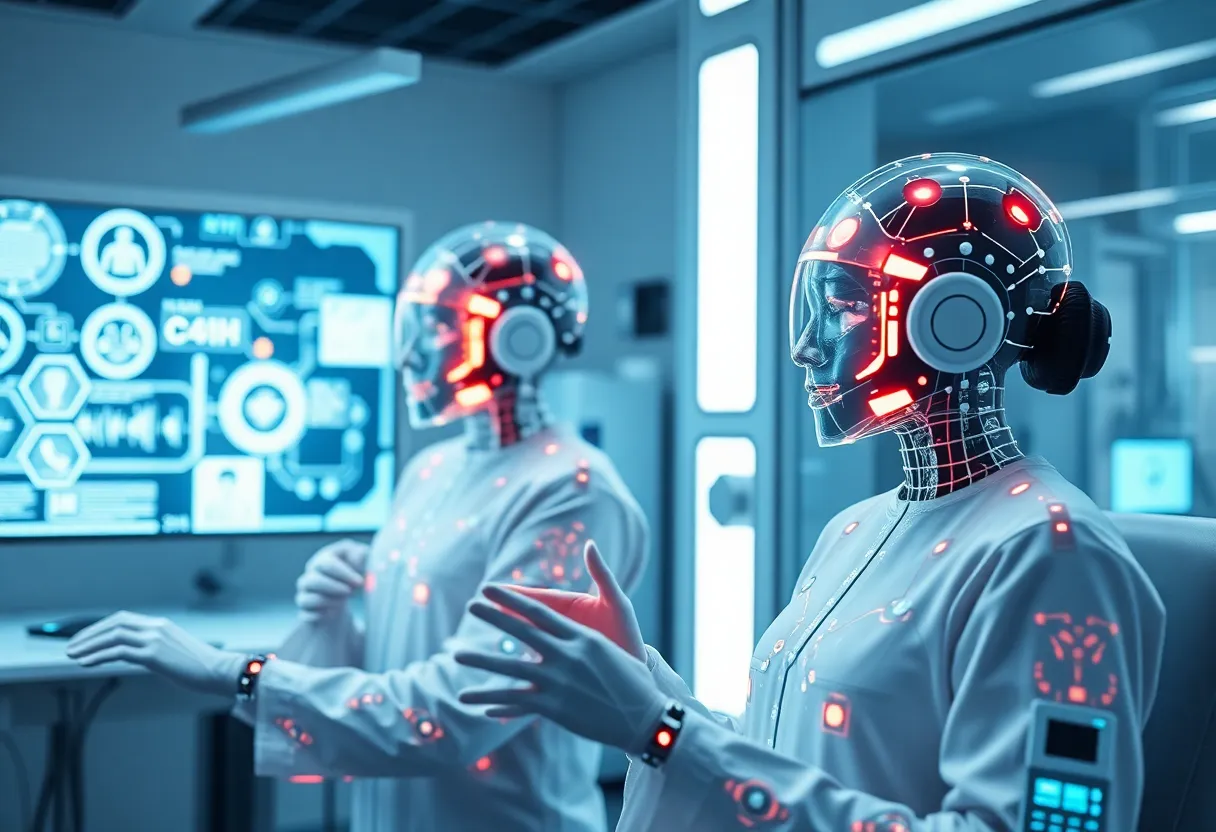News Summary
Dr. Roger Azevedo at the University of Central Florida is pioneering research on human digital twins that transform healthcare and education. His work aims to create digital replicas of individuals for improving medical diagnoses and enhancing learning experiences. By providing real-time guidance for healthcare professionals and personalized insights for patients, Azevedo’s research promises to impact both fields significantly. His journey from Angola to leading scientific advancements exemplifies resilience and innovation in integrating technology into healthcare systems.
Orlando, Florida – Dr. Roger Azevedo, a highly regarded Pegasus Professor at the University of Central Florida (UCF), is leading groundbreaking research on human digital twins aimed at revolutionizing healthcare applications and educational support. His work focuses on creating digital replicas of individuals that can significantly enhance medical diagnoses and learning experiences in subjects like algebra.
Azevedo’s innovative vision revolves around two primary applications of human digital twins in healthcare. The first application involves the development of a digital twin for expert healthcare professionals, particularly nurse practitioners. This digital representation could provide real-time guidance and coaching for novice practitioners during patient interactions, potentially reducing the risk of misdiagnoses. The second application allows patients to engage with their own digital twins, providing insights on possible future health outcomes based on their current lifestyle choices, such as the risk of developing diabetes or other health issues. By accessing a patient’s medical data, the digital twin can showcase tailored health scenarios that inform individuals about their future health prospects.
The implications of Azevedo’s work extend beyond personal health; he believes there are “endless uses” for digital twins, benefiting both patients and healthcare professionals. The technology also finds its place in educational settings. Azevedo applies his research on digital twins to create simulations of student interactions, especially in teaching challenging subjects like algebra in a more personalized manner.
In his research endeavors, Azevedo has noted that future healthcare workers display a keen interest in integrating artificial intelligence into medical workflows. However, there are concerns regarding the accuracy of AI-generated diagnoses and the trust that patients will place in these technologies. This skepticism indicates a critical area for further exploration and validation as digital twins become more incorporated into healthcare systems.
Dr. Azevedo’s journey to this pioneering work began in a challenging environment. As a child during a civil war in Angola, he faced numerous obstacles that later informed his resilience. After immigrating to Canada, he encountered difficulties, including language barriers. However, Azevedo persevered, completing his undergraduate degree in psychology before pursuing cognitive science at McGill University. It was here he began to delve into research, ultimately leading him to UCF in 2018, where he has since taken on the role of lead scientist for the Learning Sciences Faculty Cluster Initiative.
Azevedo emphasizes the significance of persistence, advocating for the importance of learning from both successes and failures throughout his journey. His excitement about future collaborations with colleagues and the potential for exploring interactions between humans and machines in educational and healthcare settings is palpable, as he continues to push the boundaries of what digital twins can achieve.
In summary, Dr. Roger Azevedo’s pioneering research at UCF focuses on the application of human digital twins in healthcare and education. By developing digital replicas that can interact with both professionals and patients, Azevedo aims to improve medical diagnoses and personalize educational experiences. His work promises to have far-reaching implications, as it opens new avenues for integrating technology into both healthcare and learning environments.
Deeper Dive: News & Info About This Topic
HERE Resources
Additional Resources
- Nicholson Student Media: UCF Professor Works to Develop Human Digital Twinning in Healthcare
- Wikipedia: Digital Twin
- Engineering.com: Magnetic 3D Partners with UCF
- Google Search: Digital twins in healthcare
- The Capitolist: UCF to Receive $8.8 Million for Semiconductor Research
- Google Scholar: Digital twins healthcare
- WESH: Phillips Center Hosts UCF Celebrates Arts
- Encyclopedia Britannica: Artificial Intelligence
- West Orlando News: Florida Poly and UCF Co-Host Industrial Engineering Conference
- Google News: University of Central Florida
Author: STAFF HERE ORLANDO WRITER
ORLANDO STAFF WRITER The ORLANDO STAFF WRITER represents the experienced team at HEREOrlando.com, your go-to source for actionable local news and information in Orlando, Orange County, and beyond. Specializing in "news you can use," we cover essential topics like product reviews for personal and business needs, local business directories, politics, real estate trends, neighborhood insights, and state news affecting the area—with deep expertise drawn from years of dedicated reporting and strong community input, including local press releases and business updates. We deliver top reporting on high-value events such as Orlando International Fringe Theatre Festival, Megacon Orlando, and Central Florida Fair. Our coverage extends to key organizations like the Orlando Economic Partnership and Hispanic Chamber of Commerce Metro Orlando, plus leading businesses in leisure and hospitality that power the local economy such as Walt Disney World Resort, AdventHealth, and Universal Orlando. As part of the broader HERE network, including HEREJacksonville.com, HEREPetersburg.com, HERETallahassee.com, and HERETampa.com, we provide comprehensive, credible insights into Florida's dynamic landscape.




